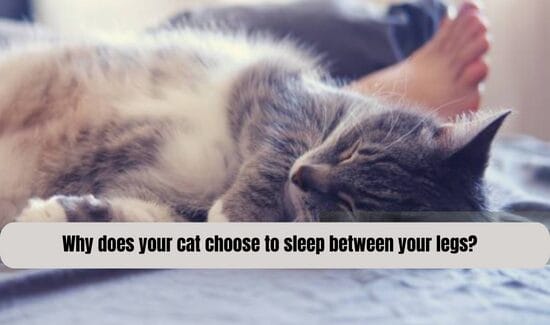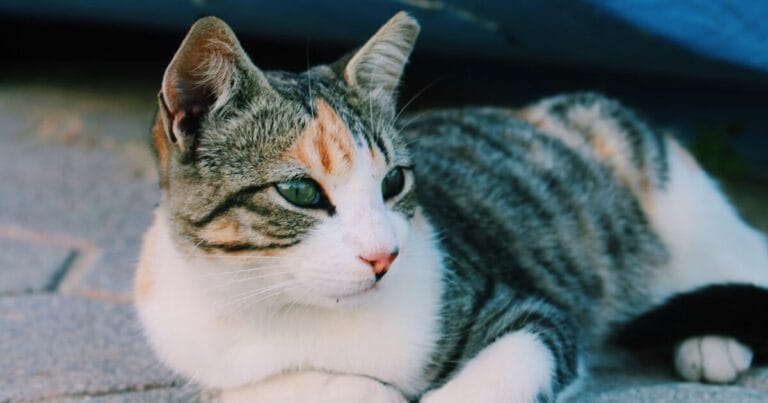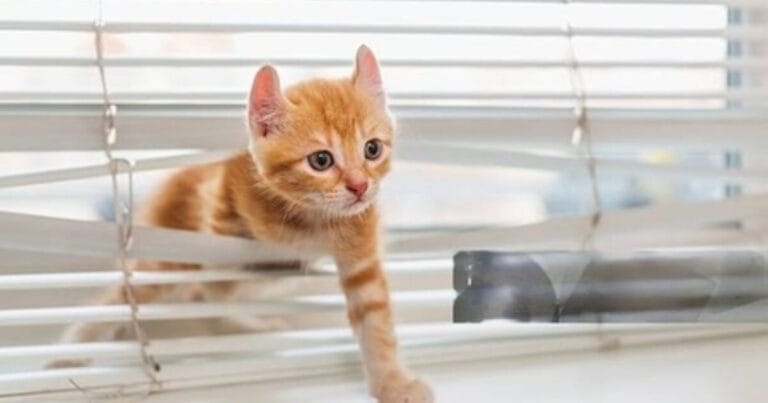“Moving to a new home can be an exciting adventure for humans and their feline companions. However, if you’ve noticed that your beloved cat has suddenly become quite the chatty Cathy since the big move, you might wonder what’s happening.
Fear not! In this enlightening blog post, we’ll explore the fascinating reasons why your furry friend is meowing so much after moving.
From adjusting to unfamiliar surroundings to seeking attention or expressing anxiety, we’ll uncover it all and provide valuable tips on how to help your talkative tabby feel more at ease in their new environment. So grab a cup of tea (or milk?), sit back, and let us demystify this peculiar behaviour.
Discuss The Common Scenario Of A Cat Meowing Excessively After Moving To A New Home:

Moving to a new home can be an exciting and stressful experience for humans, but it can also greatly impact our feline friends. Cats are known for being creatures of habit, and any environmental change can cause stress and anxiety. One common scenario many cat owners may encounter is their cat meowing excessively after moving to a new home.
The Common Scenario:
It is not uncommon for cats to meow more than usual when they are in a new environment. This behaviour may start as soon as the cat enters the new house, or it may take a few days to develop. Typically, the meowing will occur at night when the house is quiet and your cat feels most vulnerable.
Excessive meowing can manifest in different ways – some cats may cry loudly, while others may make low-pitched yowling sounds. Some may even pace around the house or hide in unusual places. This sudden increase in vocalization can be concerning for owners, especially if they have never experienced this behaviour from their cat before.
Why Do Cats Meow After Moving?
Moving to a new home can be a stressful and overwhelming experience for both humans and their feline companions. Cats are known for being territorial creatures, so any change in their environment can cause them to feel anxious and uncertain. As a result, you may notice your cat meowing more frequently after moving.
This section will discuss potential reasons why your cat may be meowing more after moving, including stress, anxiety, and unfamiliar surroundings.
There are several reasons why cats meow excessively after moving to a new home:
1. Stress and Anxiety:
As mentioned earlier, cats are creatures of habit, and any environmental change can cause them stress and anxiety. Moving to a new home means leaving behind familiar scents, sounds, and routines your cat relies on for comfort.
They may feel overwhelmed by the unfamiliar surroundings and the presence of new people or pets in the house. This can make them feel insecure and prompt them to vocalize their distress through increased meowing.
Fear:
It all comes down to fear – that mysterious emotion we struggle to understand in our feline companions. While some cats may adapt seamlessly, others find themselves overwhelmed by their new surroundings. Just imagine being whisked away from everything familiar and thrust into a labyrinth of unfamiliar scents, sounds, and sights.
For some kitties, fear manifests as incessant meowing. It’s their way of expressing unease or seeking reassurance from their trusted human companion. Perhaps they’re trying to communicate their discomfort or simply longing for familiarity amidst this bewildering landscape.
But here’s the thing about fear – it rarely reveals itself in straightforward ways. Every cat has its own unique language when it comes to anxiety; excessive grooming, hiding under furniture, or refusing food are just a few examples.
3. Loss of Territory:
Cats are territorial animals, so moving into a new territory can be intimidating.One common behavior that often perplexes cat owners is excessive meowing after relocation. Behind this seemingly innocent act lies a deeper psychological struggle – the loss of territory.
In addition to physical territory loss, cats also mourn the intangible territories they’ve lost – connections with other animals in the neighborhood or secret hiding spots known only to them. These losses contribute further distress as our feline friends navigate through uncharted territories seeking familiarity amidst uncertainty.
3. Unfamiliar Surroundings:
Cats are creatures of habit who thrive on familiarity and routine. Moving to a new home means everything from the house’s layout to the furniture location is different for your cat. This drastic change can leave them disoriented and confused, causing them to meow more as they try to navigate the new space.
Explain How Cats Communicate Through Meowing And Why It Is Important For Owners To Understand Their Behavior.
Understanding cat behaviour is crucial for any cat owner, especially regarding their means of communication. Cats are known for being independent and mysterious creatures, often making it challenging for us to understand what they want or need. One of the most common ways cats communicate is through meowing, and owners must understand this behaviour.
Cats use vocalizations like purring, hissing, growling, and meowing to express themselves. However, meowing is unique as cats mostly use it to communicate with humans rather than other cats. This behaviour has evolved over centuries of domestication as a way for cats to get our attention and let us know how they feel.
Meowing can have various meanings depending on the situation and the tone used by your cat. For example, a short and soft meow may indicate a friendly greeting or request for attention. On the other hand, a loud and prolonged meow could mean your cat is in distress or hungry. Understanding these subtle differences in their vocalizations can help you better respond to their needs.
One of the main reasons why cats tend to meow more after moving into a new home is because they are trying to adjust and communicate their feelings about the unfamiliar environment.
Moving can be stressful for humans and animals alike, but cats often resort to meowing excessively since they cannot verbalize their stress like we do.
It’s important not to dismiss your cat’s increased meowing as simply seeking attention or being annoying.
How To Help Your Cat Adjust In A New Home?
Adjusting to a new home can be a stressful and overwhelming experience for cats. They are creatures of habit, and any environmental change can cause anxiety and confusion.
It’s common for cats to meow more than usual after moving as they try to express their discomfort or disorientation. However, there are ways you can help your cat adjust to the new surroundings and reduce excessive meowing.
1. Create a Safe Space:
The first step in helping your cat adjust is to provide them with a safe space where they feel secure. This could be a spare room, closet, or even a cosy living room corner. Ensure the space has all the necessities like food, water, a litter box, toys, and a comfortable resting place.
2. Familiar Scents:
Cats rely heavily on their sense of smell, so making the new home smell familiar is important. You can achieve this by bringing some items from your old house with your cat’s scent, such as their bed or favourite blanket.
3. Stick to Routine:
Cats thrive on routine, and any disruption can cause stress and anxiety. Try to maintain your cat’s feeding schedule, playtime routine, and bedtime rituals as much as possible. This will give them a sense of familiarity in the new environment.
4. Introduce Slowly:
If you have other pets in the household, it’s crucial to introduce them slowly and carefully to avoid conflicts or territorial behaviour which may further distress your cat.
Conclusion:
In conclusion, it is normal for your cat to meow more after moving. This behaviour can signify anxiety or stress caused by environmental change.
By understanding the reasons behind your cat’s excessive meowing and taking steps to make them feel comfortable and secure in their new home, you can help ease their transition and reduce their meowing.
Remember to give them extra love and attention during this time, as they may need reassurance from their favourite human. With patience and proper care, your cat will adjust to their new surroundings and return to their usual level of vocalization.




